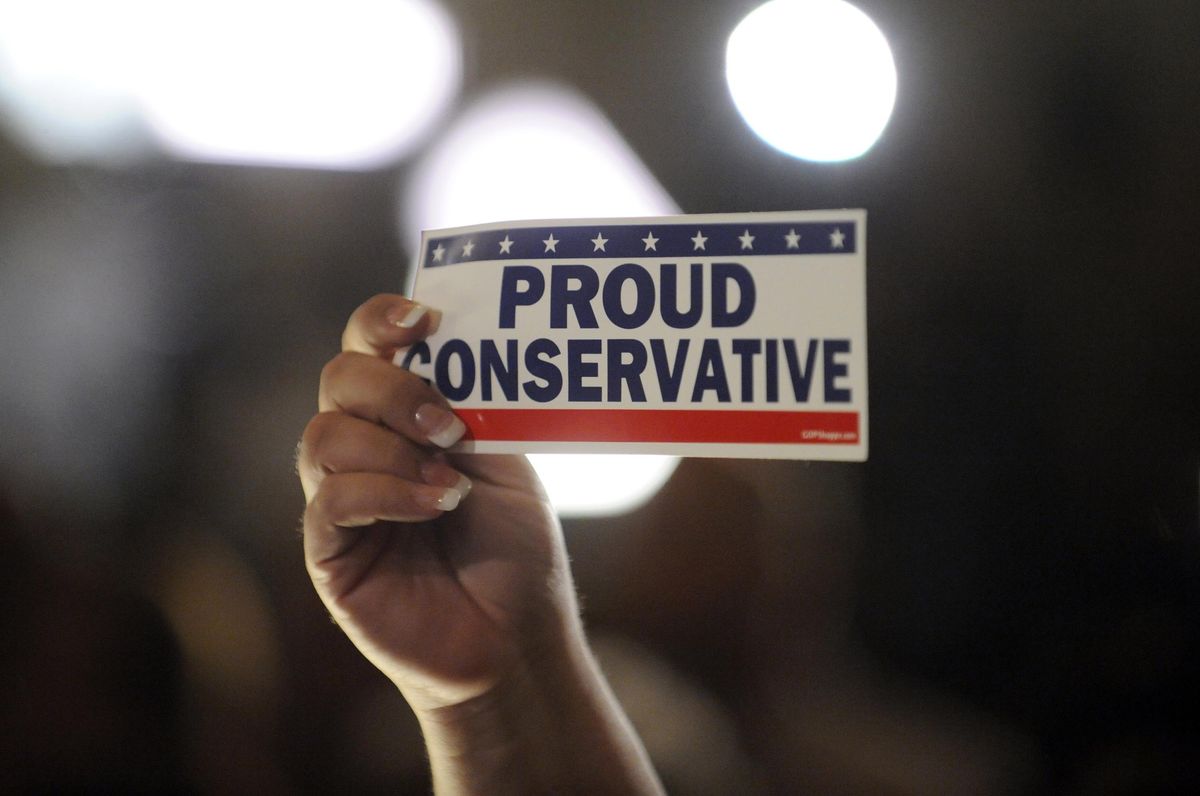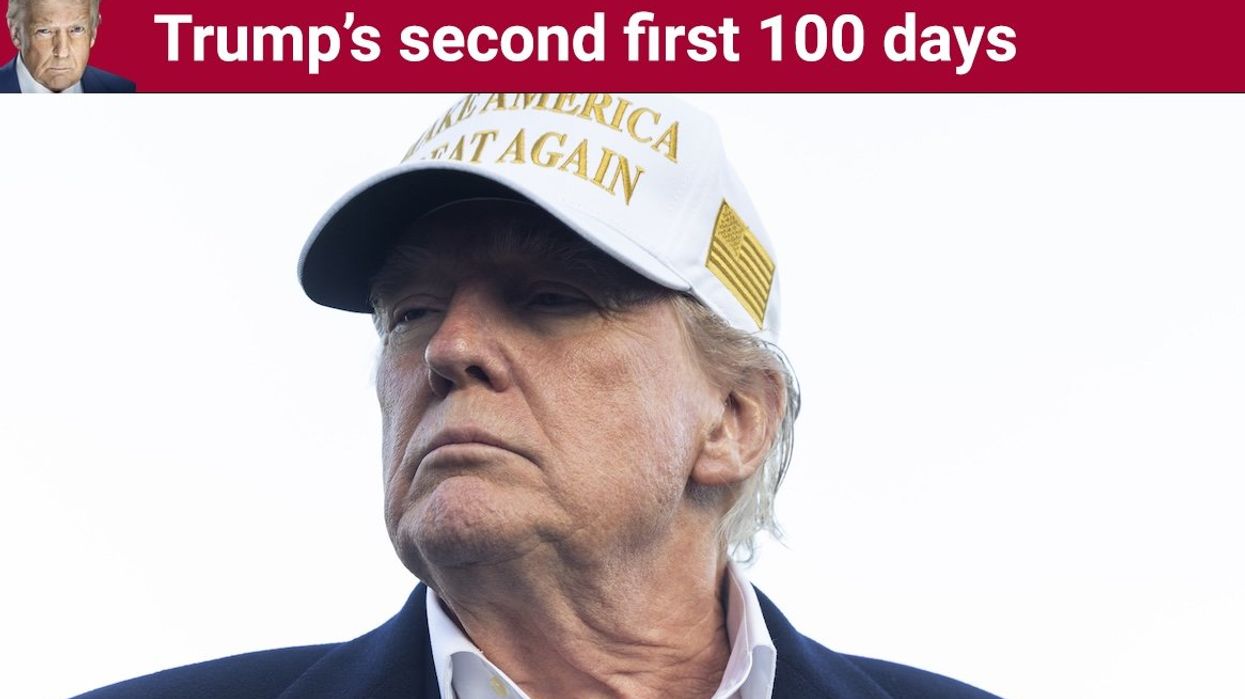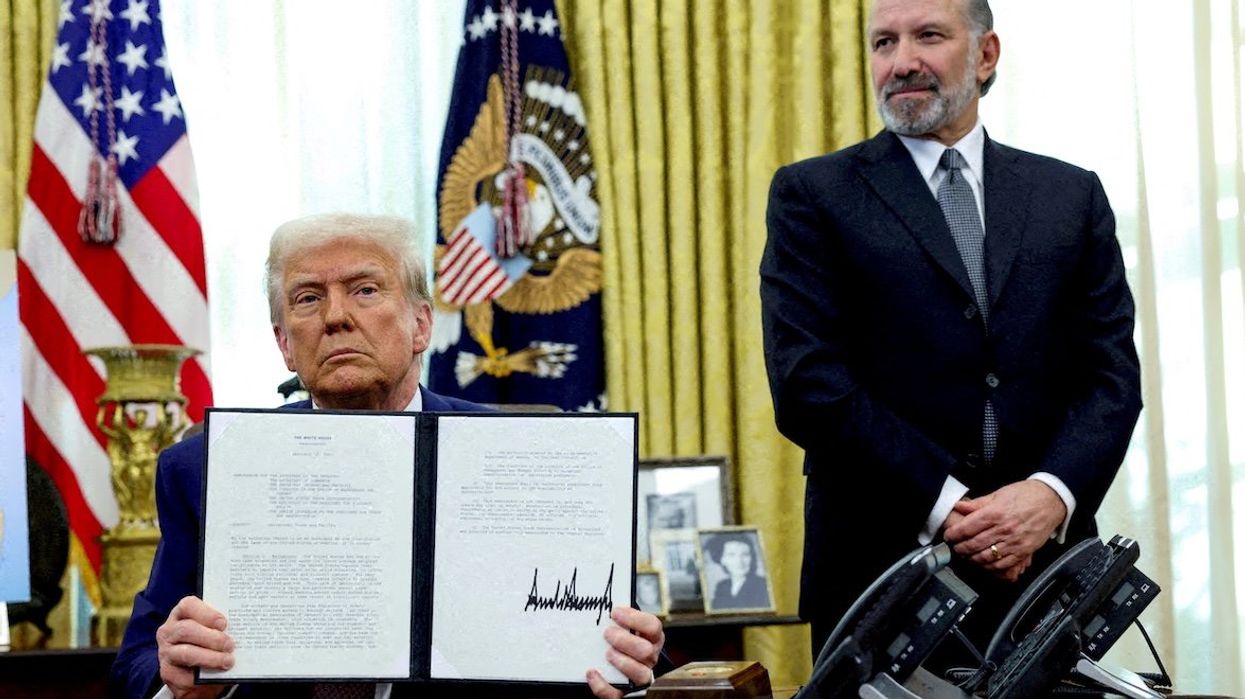For decades, the coalition that made up American conservatism included the strong influence of limited-government libertarians who identified themselves as the “leave us alone coalition.” But amid the social and cultural clashes playing out in America in recent years, a new, more activist strain of conservatism is rethinking the political value of leaving key institutions alone: National Conservatism.
NatCons see an existential threat from the secular left, and they want to use the power of the state to put conservative values back in the center of public life.
These ideas were on full display during the National Conservative Conference in Miami, Florida, this week. For three days, hundreds of conservative activists, intellectuals, and aspiring politicos debated the future of America’s conservative movement at the third annual gathering of the National Conservative Conference.
So, who are NatCons and what do they want? The US conservative movement traces its roots back to British intellectuals like Edmund Burke who opposed the liberal theories of universal rights advanced by people like John Locke. It continues through to the conservatives who founded the National Review in the 1950s and who today love discussing these and other long-dead thinkers at institutions such as Hillsdale College and the Claremont Institute. In recent years, this intellectual lineage was at risk of being rendered irrelevant by the unexpected political success of former President Donald Trump, who tore the conservative movement apart … but also gave it its most significant policy achievements in a generation.
Like the crews that show up after hurricanes, national conservatives see their job as rebuilding and revitalizing the intellectual foundations of conservatism to keep the movement alive for a new generation. Think MAGA, but with a Ph.D.
Chief among their tasks is helping conservatives challenge what they see as the biggest threat since communism: the woke left. The conservatives gathered in Florida believe leftists dominate US institutions, from academia to big business, and have long tried to dismantle the old American order grounded in faith and family values – and to replace it with an egalitarian world order. This, conservatives fear, would destroy what makes America unique, and great. While Trump’s message of making America great again resonates with this audience, there was open skepticism this week about the former president’s return to public life. Jewish yarmulkes were a more common sight than red MAGA hats, reflecting a very different wing of the Republican Party than those flocking to Trump rallies.
What’s the difference between national conservatism and regular old conservatism? Old conservatism, from the Barry Goldwater political realignment of the 1970s through the second Bush administration, was a mix of anti-communist national security hawks, evangelical voters in the 1980s and 90s, and economic free marketers who pushed for deregulation, low taxes, and open borders to unlock innovation. They agreed on the need for a robust military and a limited government focused solely on helping liberty flourish.
NatCons reject this. For them, conservative libertarianism failed to give working-class voters a reason to support the right. Combined with the electoral success of Trump’s populist economics and the fact that many believe the American left is a greater threat than anything happening abroad (with the possible exception of China), NatCons reject the free-market ideology of your father’s conservativism and see a role for a more robust and muscular leader who uses power to correct America’s course. The movement is anti-China, anti-big tech, anti-bureaucrat, and pro-God.
This means a deep disdain for the US civil service, a constant source of derision. They want leaders to fight the deep state, confront the liberal media, go after leftist academics they say are destroying education, and punch back when big businesses reflexively adopt liberal causes while ignoring the priorities of tens of millions of America’s religious and cultural conservatives.
Republican politicians in Miami clearly sensed a moment of opportunity. “Without the Bible, there is no modernity. Without the Bible, there is no America,” Missouri Senator Josh Hawley told attendees. West Virginia Treasurer Riley Moore, meanwhile, shared his journey from welder to combatant against monied capitalists on behalf of his coal-mining constituents.
Nobody embodies the movement more than Florida’s young Gov. Ron DeSantis, who got a standing ovation after an hour-long, policy-heavy speech touting his accomplishments in confronting the media and big tech and his unique approach to COVID – a not-so-subtle dig at Trump, who elevated the person who, for conservatives, became the face of a rotten administrative state: Anthony Fauci. DeSantis’s speech directly referenced the quote from Trump advisor Steve Bannon that a country is more than an economy. This idea has turned into a nationalist creed that the government must offer more to its people than cheap Chinese imports, low-wage retail jobs, and a debased national culture.
National conservatism is an admission from the right that limited government did not work. It did not prevent jobs from moving to Mexico or stop China from stealing US intellectual property. It did not protect the nuclear family or create more two-parent households. It has not improved public schools, they say, or stopped enormous sums from being wasted in futile wars.
This movement sees itself explicitly representing a faction in a factionalized society that needs to fight to keep what it has the way the left has been fighting to take it. This is not a new movement, but it is a different form of conservatism that shares only a religious identity with your father’s conservatism. NatCons believe they are the future of the American right, and they are preparing to push the GOP in their direction through a declaration of policy principles that span from the bland to the radical.
The most radical – and one that’s causing division – is over the role of religion in public life. Some want to target Supreme Court decisions from the 1940s that expanded what had been a much more limited concept of the separation of church and state than Americans broadly accept today. A nationalist America is one with a strong conservative identity, one that until recently was largely religious in character.
Something not addressed at NatCon, however, was the rising diversity of America since the 1950s. At the beginning of the Eisenhower administration, America was 90% white and 90% Christian. Today, whites make up a shrinking segment of the population, and Christians are rapidly becoming a religious minority – still dominating Jews, Muslims, or Hindus in number but nowhere near as dominant as they were even 40 years ago as church attendance has plummeted. The collapse of the national religious identity has given way to secular leftism. NatCons, in turn, want to roll back the clock on social change by allowing states to bring religion back into public schools.
So can national conservatism tolerate dissent? Can it live with secular, childless, elite-educated America? Or is this yet another faction in a rapidly factionalizing American that cannot tolerate living in the same country as its cultural and ideological foes? The movement to protect the dying cultural vestiges of pre-2000s America is about more than simply making space for the religious right; it’s about reversing the dominance of the secular left. It’s unclear whether there’s room to tolerate those they see as sneering elites in academia and woke corporations, and who, in a healthy democracy, occasionally win elections.
Conservatives have factionalized themselves for years between “neoconservatives,” “populist conservatives,” and “free market conservatives,” and the religious among them grew up quite comfortable in their own strong identities – be they Catholic, Protestant, or Jewish.
While these groups mixed comfortably in an air-conditioned ballroom in Miami, it is unclear how being positioned to fight an ideological war for the soul of a nation against the enemies within is compatible with America as a pluralistic liberal society that has thrived on mitigating differences through politics. If the US is to successfully transition from its roots as a male-dominant, white Christian nation to a multiethnic pluralistic society, the factions need to find a common language.
But a language of accommodation is lacking. Public opinion polling frequently finds that Americans on both the right and left see the country’s biggest problems differently. Apart from education and church attendance, geography is increasingly the most important marker of political affiliation as Americans are clustering in places that are more culturally homogenous.
Many fear that America will be lucky if politics remains the only place where these cultural differences are fought. Too many countries have already shown us what happens when ethnic and religious groups find themselves uncomfortable with their neighbors. Today’s fiery political rhetoric could become tomorrow’s firebombs unless ideologues on the left and right make space for one another.
Nothing in Miami suggested we are close to that point.
Jon Lieber is the lead US political analyst at Eurasia Group.



















